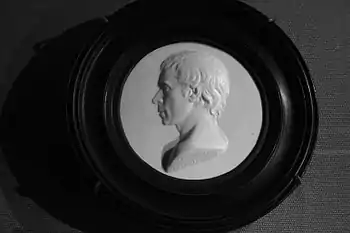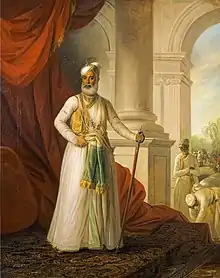
George Willison (1741–1797) was a Scottish portrait-painter. He is best known for his works done in India.
Life

He was a son of David Willison, an Edinburgh printer and publisher, and grandson of John Willison. His uncle George Dempster of Dunnichen sent him to Rome to study art. There from 1760 to 1767, he worked initially under Raphael Mengs. On his return he settled in London.[1][2]
Willison went to India and painted portraits, including those of some Indian princes and their families. He returned to Edinburgh, having acquired a large fortune in jewels. There he continued to paint, and died in April 1797.[1][2]
Works

In 1756 Willison was awarded a prize for a drawing of flowers by the Edinburgh Society for the Encouragement of the Arts and Sciences, and in the two following years his name again figured in the prize-list. Between 1767 and 1777, he exhibited about 25 portraits at the Royal Academy.[1]
In India he painted officials of the East India Company. He spent an extended period at the court of the Nawab of Arcot. There he produced a series of portraits that were destined for the British political supporters of the Nawab. He also worked for the Nawab's rival the Raja of Tanjore.[2]
A number of Willison's portraits were engraved by Valentine Green and James Watson.[1]
Notes
- 1 2 3 4 . Dictionary of National Biography. London: Smith, Elder & Co. 1885–1900.
- 1 2 3 Matthew, H. C. G.; Harrison, B., eds. (23 September 2004). "The Oxford Dictionary of National Biography". Oxford Dictionary of National Biography (online ed.). Oxford: Oxford University Press. pp. ref:odnb/29591. doi:10.1093/ref:odnb/29591. Retrieved 20 March 2022. (Subscription or UK public library membership required.)
External links
- 13 artworks by or after George Willison at the Art UK site
- Attribution
![]() This article incorporates text from a publication now in the public domain: "Willison, George". Dictionary of National Biography. London: Smith, Elder & Co. 1885–1900.
This article incorporates text from a publication now in the public domain: "Willison, George". Dictionary of National Biography. London: Smith, Elder & Co. 1885–1900.